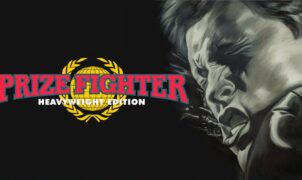MOVIE NEWS – Known for his iconic roles in Mission: Impossible and Top Gun: Maverick, Tom Cruise has firmly established himself as one of Hollywood’s most celebrated figures. Frequently labeled as “highly paid” and “reliable,” Cruise’s career is a blend of monumental successes and unforgettable flops. Similarly, Sandra Bullock once achieved the unique feat of winning both an Oscar and a Razzie in the same year for The Blind Side and All About Steve in 2009. Let’s dive into how Cruise’s name became linked to two completely contrasting films – Cocktail and Rain Man – in the same year.
In 1988, Cocktail was awarded the Golden Raspberry for Worst Picture, while Rain Man took home the Academy Award for Best Picture just six months later. How could such a dramatic contrast happen within such a short span of time? Let’s uncover the story behind this cinematic anomaly.
Looking at the directors of these two films, there is little difference in their creative credentials. Barry Levinson, with a 40-year filmography featuring works like Good Morning, Vietnam and Toys, brought an emotional depth to Rain Man. In contrast, Cocktail was helmed by Roger Donaldson, a filmmaker celebrated for introducing New Zealand cinema to the global stage. His notable works include Species (1995) and The Recruit (2003).
Did Cruise’s Influence Undermine Cocktail’s Original Vision?
Both Levinson and Donaldson are accomplished directors, so what explains the stark difference between these films? Could Cruise’s involvement have played a role?
Behind-the-scenes accounts suggest that Cocktail was initially intended as a serious commentary on the darker aspects of fame. However, the script was reportedly simplified to protect Cruise’s rising stardom. Actress Kelly Lynch, who played a secondary romantic role in the film, shared with A.V. Club that the movie’s original themes of “power and money” were watered down, with Disney reshooting about one-third of the film. While she confirmed changes were made, she didn’t explicitly link them to Cruise’s involvement.
Similar Beginnings, Divergent Outcomes
Despite its flashy premise, Cocktail failed to deliver a compelling narrative, relying instead on a shallow love story and one-dimensional characters. Critics were quick to dismiss its empty themes and superficial romance, resulting in its infamous Razzie wins for Worst Picture and Worst Screenplay. Interestingly, both Cocktail and Rain Man share roots in real-life experiences. Screenwriter Heywood Gould drew from his bartending days for Cocktail, while Rain Man’s writer Barry Morrow based Raymond Babbitt on two real individuals, Kim Peek and Bill Sackter.
Unlike Cocktail, Rain Man faced minimal interference from studios, allowing its heartfelt narrative to shine. The film focused on the evolving relationship between Charlie and Raymond, offering a nuanced portrayal of brotherhood, anchored by the dynamic performances of Cruise and Hoffman.
Why Rain Man Resonates More Profoundly
Rain Man succeeds in delivering a seamless and emotionally resonant story. Cruise’s portrayal of Charlie, who learns to care for his autistic brother, is a compelling depiction of the stages of denial, acceptance, and understanding. This emotional journey offered Cruise a wider acting range than Cocktail and left viewers with a deeply satisfying conclusion. It’s also worth noting that Cruise shared the screen with Dustin Hoffman, a seasoned actor with multiple accolades to his name.
Could Cocktail have fared better without studio interference? Perhaps. In a 1992 Rolling Stone interview, Cruise himself admitted that Cocktail “was not a crowning jewel.” For those curious to compare these two films, both are available on Prime Video, YouTube, and Apple TV.
Source: MovieWeb
















Leave a Reply